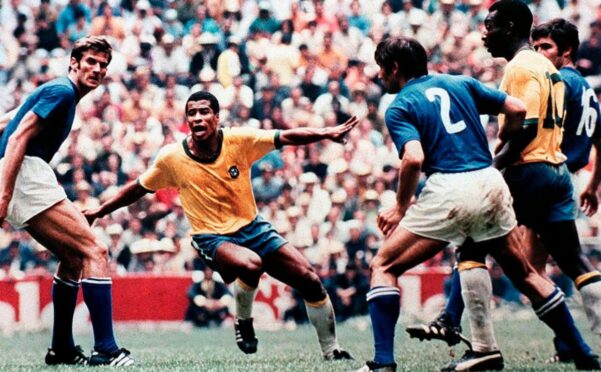
I wonder if you feel like me? I’ve never looked forward to a World Cup less than the one that’s about to kick-off in Qatar.
I haven’t studied the fixtures, or the groups or even thought about picking a fantasy team. And it’s not because my two teams – Scotland and Ireland – haven’t qualified. Nor is it even that domestic football has been suspended mid-season to make way for this desert showpiece.
No, it’s about something much more important than football. My antipathy is borne of the colossal exploitation that this tournament has been erected upon.
For this is a World Cup whose every physical foundation has been built on the sites where so many World Cup workers have needlessly died.
The tragedy isn’t just the loss of life, but that it was all so easily preventable. Here’s the background: Qatar is unlike any host nation in the competition’s 92-year history.
The country just doesn’t have enough of its own citizens to build the hotels, new airport and seven stadiums that are needed. It is a country almost seven times smaller than Scotland and, in a population of just under 3million, there are only 300,000 Qataris.
Put that another way – there are more seats in the tournament stadiums than there are citizens of the country.
So instead of relying on their own people, their economy is permanently sustained by immigrants who make up almost 90% of their population. If Scotland had the same ratio of citizens to migrants, we would be home to 48 million migrant workers.
The Sunday Post view: It is not Fifa’s, not Qatar’s. It’s ours and we should have been asked
I wanted to know more about what was going on there. So, I twice visited Qatar to meet with workers on the sites. Mark Aitken, The Post’s political editor, was with me on one of the trips and shared my horror.
In the UK it wouldn’t be acceptable to treat a family pet or, I would go as far to say, even a farm animal, in the squalid way in which too many World Cup workers were treated.
Most of the workers I met in those filthy Doha labour camps had travelled from much poorer nations in South Asia and across Africa.
All journeyed without their families but arrived with a hope in their hearts as they set out to craft the most modern sports stadiums on the planet. Many of them football fans, excited to be part of something special that they would one day tell their grandchildren about.
They reminded me of the generations of Clyde shipbuilders bursting with working-class pride boasting to their grandchildren about the famous ships that their hands helped shape.
But, unlike so many World Cup footballers, there has been no glory or glamour and not enough gain for those who have laboured.
Instead, when many arrived, they had their passports seized by their employers under a previous arrangement known as the kafala system which prevented them from switching jobs or even returning home without their boss’ permission.
Those I met lived packed into overheated and overcrowded lorry containers which boiled in temperatures regularly averaging over 100°C.
But there’s something more serious which we should never forget and probably never forgive Fifa and Qatar for. Many of those workers won’t be returning home.
Too many haven’t lived to see the tournament or grow old and tell their grandchildren about their place in building football history. According to campaigners more than 6,500 migrant workers have died in Qatar since they were awarded the World Cup.
Think about that. Thousands of healthy young migrants have died from accidents, exhaustion or heart attacks to bring us a football tournament. And it didn’t have to be this way – if only the Qataris had honoured decent standards and the world had maintained pressure about workers’ rights.
And compare it to the number of deaths constructing other major sporting events: the Olympics in London 2012 there were zero fatalities, in Rio four years later there were eight deaths and two workers perished building last year’s Japanese Olympic infrastructure. Workers’ deaths in Qatar are on an industrial scale compared to every other major sporting tournament.
Scottish Football Association urged to stay away from Qatar World Cup
I hear the argument that claims these major events can change a country’s behaviours. That was the logic that gave the Olympics to China in 2008 and the World Cup to Russia a decade later. As Russia terrorises Ukraine and China debates an invasion of Taiwan, it is more uncertain than ever that this sort of sports diplomacy is working.
The Brazilian forward Didi was first to describe football as the beautiful game. Those of us who love the sport have always enjoyed the conceit of belonging to something that has always celebrated itself as being more than just a game.
But no tournament in any sport at any point in human history has contributed to such catastrophic loss of human life. Qatar is where so many migrants needlessly lost their lives. And it’s where international football’s claim to being the beautiful game died alongside them.
Jim Murphy is a former Labour cabinet minister and managing director of Arden Strategies

Enjoy the convenience of having The Sunday Post delivered as a digital ePaper straight to your smartphone, tablet or computer.
Subscribe for only £5.49 a month and enjoy all the benefits of the printed paper as a digital replica.
Subscribe